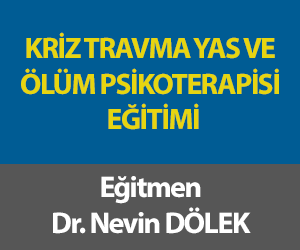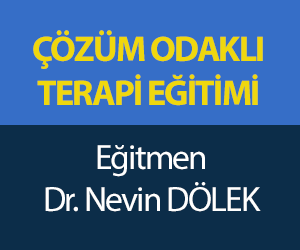Coping With Chronic Illnesses and Depression

For millions of people, chronic illnesses and depression are facts of life. A chronic illness is a condition that lasts for a very long time and usually cannot be cured completely, although some illnesses can be controlled through diet, exercise, and certain medications. Examples of chronic illnesses include diabetes, heart disease, arthritis, kidney disease, HIV/AIDS, lupus, and multiple sclerosis.
Many people with chronic illness experience depression. In fact, depression is one of the most common complications of chronic illness. It is estimated that up to one-third of individuals with a serious medical condition experience symptoms of depression.
It is not hard to identify the cause and effect relationship between chronic illness and depression. Serious illness can cause tremendous changes in lifestyle, and limit an individual’s mobility and independence Chronic illness may make it impossible to pursue the activities one enjoys, and can undermine self-confidence and a sense of hope in the future. It is not surprising, then, that people with chronic illness often experience a certain amount of despair and sadness .In some cases, the physical effects of the illness itself or side effects of medication may also lead to depression.
Chronic Illness and Depression: What Chronic Conditions Trigger Depression?
Although any illness can trigger depressed feelings, the risk of chronic illness and depression increases with the severity of the illness and the level of life disruption it causes. The risk of getting depression is generally 10-25% for women and 5-12% for men. However, those with chronic illnesses face a much higher risk -- between 25-33%.
Depression caused by chronic disease often aggravates the condition, especially if the illness causes pain and fatigue, or limits a person’s ability to interact with others. Depression can intensify pain, as well as fatigue and sluggishness. The combination of chronic illness and depression also can cause people to isolate themselves, which is likely to exacerbate the depression.
Research on chronic illnesses and depression indicates that depression rates are high among patients with chronic conditions:
- Heart attack: 40%-65% experience depression
- Coronary artery disease (without heart attack): 18%-20% experience depression
- Parkinson's disease: 40% experience depression
- Multiple sclerosis: 40% experience depression
- Stroke: 10%-27% experience depression
- Cancer: 25% experience depression
- Diabetes: 25% experience depression
- Chronic pain syndrome: 30%-54% experience depression
- Chronic Illness and Depression: What Are the Symptoms?
In people with chronic illnesses and depression, patients themselves and their family members often overlook the symptoms of depression, assuming that feeling sad is normal for someone struggling with disease. Symptoms of depression are also frequently masked by other medical problems, resulting in treatment for the symptoms -- but not the underlying depression. When both chronic illnesses and depression are present, it is extremely important to treat both at the same time
Chronic Illness and Depression: Treatment Options
Treatment of depression in chronically ill patients is similar to treatment of depression in other people. Early diagnosis and treatment can reduce distress, as well as the risk of complications and suicide for those with chronic illness and depression. In many patients, depression treatment can produce an improvement in the patient’s overall medical condition, a better quality of life, and a greater likelihood of sticking to a long-term treatment plan.
If the depressive symptoms are related to the physical illness or the side effects of medication, treatment may need to be adjusted or changed. When the depression is a separate problem, it can be treated on its own. More than 80% of people with depression can be treated successfully with medicine, psychotherapy, or a combination of both. Antidepressant drugs usually begin to have a positive effect within a matter of weeks. It is important to work closely with a physician or psychiatrist to find the most effective medication.
Tips for Coping With Chronic Illnesses and Depression
Depression, disability, and chronic illness form a vicious cycle. Chronic medical conditions can bring on bouts of depression, which, in turn interfere with successful treatment of the disease.
Living with a chronic illness is a tremendous challenge, and periods of grief and sadness are to be expected as you come to grips with your condition and its implications. But if you find that your depression persists, and/or that you are having trouble sleeping or eating, or have lost interest in the activities you normally enjoy, it is important to seek help.
Some tips to help you cope with chronic illness and avoid depression:
Try not to isolate yourself. Reach out to family and friends. If you don’t have a solid support system, take steps to build one. Ask your physician or therapist for referrals to a support group and other community resources.
Learn as much as you can about your condition. Knowledge is power when it comes to getting the best treatment available, and maintaining a sense of autonomy and control.
Make sure that you have medical support from experts you trust, and can talk to openly about your ongoing questions and concerns.
If you suspect that your medication is causing you to be depressed, consult your doctor about alternative treatments.
If you are in chronic pain, talk with your physician about alternative pain management.
As much as is possible, remain engaged in the activities you enjoy. Doing so will keep you connected, as well as boosting your self-confidence and sense of community.
If you become depressed, don’t wait too long before seeking help. Find a therapist or counselor whom you trust.
SOURCE: webmd.com










Türkçe karakter kullanılmayan ve büyük harflerle yazılmış yorumlar onaylanmamaktadır.